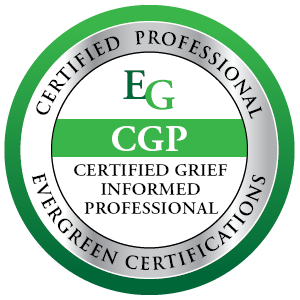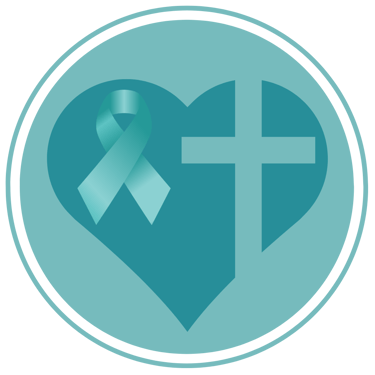5 Ways That Counseling Can Help You Get Through Cancer
5 ways that counseling can help you & your family through a cancer diagnosis. Includes coping skills & tips for thriving.
LIVING WITH CANCERCOPING SKILLS
Kimberly B. Virrueta, MS, LMFT
8/24/20244 min read


5 Reasons Why Counseling is Helpful During Cancer
Mental health counseling can be incredibly helpful after a cancer diagnosis. Newly diagnosed individuals and their families often face many emotional and psychological challenges on top of their physical health concerns.
Here are the top five reasons why someone with cancer might seek therapy:
Emotional Distress: A cancer diagnosis can trigger a wide range of intense emotions such as fear, anxiety, depression, anger, and sadness. Coping with the emotional impact of the diagnosis and how it will impact the future is a common reason why people seek counseling.
Coping with Uncertainty: The uncertainty of cancer treatment outcomes and prognosis can be particularly distressing. Counseling can help individuals develop ways to cope with this uncertainty and regain some sense of control over their lives.
Relationship Issues: Cancer can strain relationships with family members, intimate partners, and friends. The therapy relationship can provide a safe space for individuals to address communication challenges, changes in roles and responsibilities, and concerns about how cancer is affecting their relationships.
Body Image and Self-Esteem: Many cancer treatments can lead to physical changes, such as hair loss, weight fluctuations, and scars. Coping with these changes and maintaining a positive self-image can be a significant issue for cancer patients, and counseling can help address these concerns.
End-of-Life Planning: In cases where cancer is advanced or terminal, individuals may seek counseling to address end-of-life issues, make decisions about their care, and find emotional support as they navigate this challenging phase.
In addition to these reasons, cancer patients may also seek counseling to manage pain, side effects of treatment, and to address spiritual or existential concerns. As a mental health counselor specializing in cancer-related distress, your role is essential in helping individuals and their families navigate the emotional and psychological challenges that can arise during the cancer journey.
5 Common Emotional Reactions to Cancer
Emotional distress describes the intense, difficult feelings that can come with a cancer diagnosis. When someone learns they have cancer, it can stir up many strong emotions. Here are a few of the most common ones that people might feel:
Fear: Cancer is a scary word for most people. Fear of the unknown is very common, as it is uncertain how treatment will go or what the future holds.
Anxiety: This feels like being on edge or worried all the time. The nervous system goes into survival mode, engaging the body's "fight, flight, or freeze" reaction. People with cancer often worry about the disease spreading or about how side effects from treatment will feel like.
Depression: Cancer can bring on intense feelings of sadness and hopelessness. It's not uncommon for people with cancer to feel down or lose interest in things they used to enjoy. This makes sense because the present and future are suddenly altered. This realization can lead to hopelessness.
Anger: Some people might get really mad about their cancer diagnosis. They might feel like it's unfair or feel angry about the unwelcome changes it has brought to their life.
Grief: Feeling deeply grieved is a natural response to a cancer diagnosis. People can grieve for their loss of health and for the life they had before cancer. Grief can also occur as someone is unable to work or fulfill other roles in life, such as partner or parent.
Dealing with so many emotions at once can be distressing. Counseling can help because it offers a safe relationship where one can talk about their feelings, learn how to manage them, and find ways to cope. It's like having a trusted friend to share your thoughts and worries with, but this friend is also trained to help you deal with your emotions in a healthy way. When someone gets counseling after a cancer diagnosis, they can expect to receive support, learn new coping skills, and hopefully reduce distress.


5 Ways to Cope with Distress from Cancer
Learning how to cope with the distress that comes with a cancer diagnosis is crucial for one's overall well-being. Here are five coping strategies:
Talk About It: Sharing your feelings with friends, family, or a therapist can be very therapeutic. Opening up about your worries, fears, and emotions can relieve some of your emotional burden and help you feel more understood and supported. Talking about it can also reduce feelings of isolation and loneliness. Giving loved ones a chance to offer support can also improve your connection with one another.
Mindfulness and Relaxation: Learning how to do deep breathing, mindfulness meditation, or progressive muscle relaxation can help you manage anxiety and stress for a more peaceful inner world. These practices can bring your nervous system into "rest and digest" mode to improve both your physical and emotional well-being.
Stay Informed: Sometimes, fear of the unknown can make emotional distress feel more intense. Learning more about your type of cancer and your treatment options can help reduce anxiety. It's important to get information from reliable sources, such as your oncologist, and ask your healthcare team questions that get at the heart of your concerns.
Get Support: Cancer is isolating. Joining a cancer support group can give you a sense of community and shared experiences. Talking to other people who are going through a similar experience can offer valuable insights and help you feel supported. Support groups are one of the few places where a cancer patient can feel truly understood by others on the same path.
Move Your Body: Regular physical activity can have a positive effect on your emotional well-being. Exercise releases endorphins, which are your body's natural pain killers & mood boosters. Even low impact activities like walking, tai chi, or yoga can be very helpful.
Remember that coping strategies are highly individual, so what may work for someone else may not be what you connect with. It's essential to try out different things and see what works for you. Some people prefer exploring creative outlets like art or journaling, while others may find comfort in spiritual or religious practices. The most important thing is to explore different strategies and find ways that help you manage your emotions and improve your overall quality of life.
Additionally, seeking professional help from a mental health counselor or therapist with expertise in cancer-related distress can provide personalized guidance and support in developing effective coping strategies.

Terms of Service & Privacy Policy
Powered by Hostinger
Kimberly B. Virrueta, MS, LMFT // Licensed Marriage & Family Therapist #148148 (California) // Employed at Institute of Advanced Studies
Couples
Kids & Teens
Families
Adults
Medical Illness








